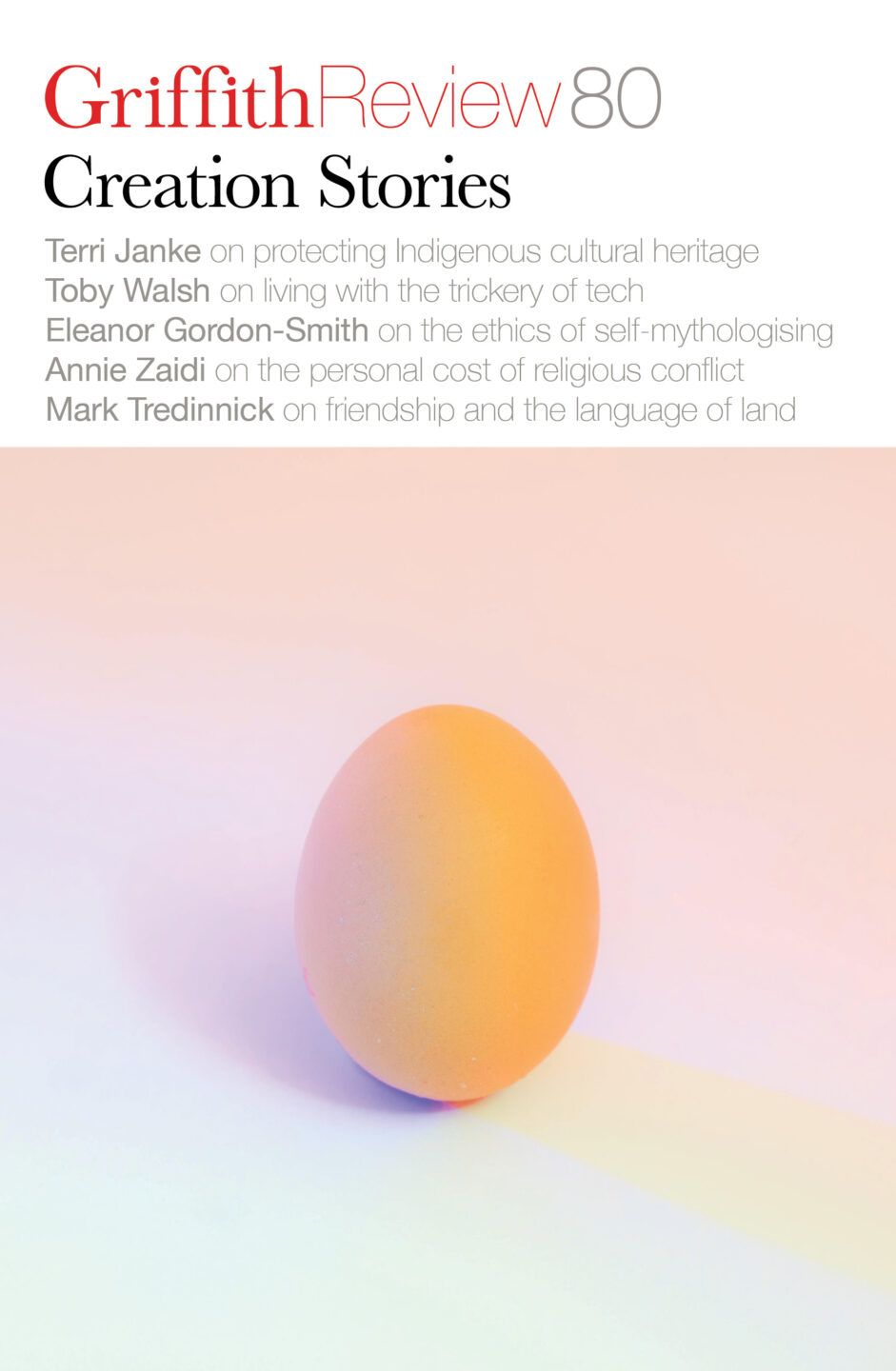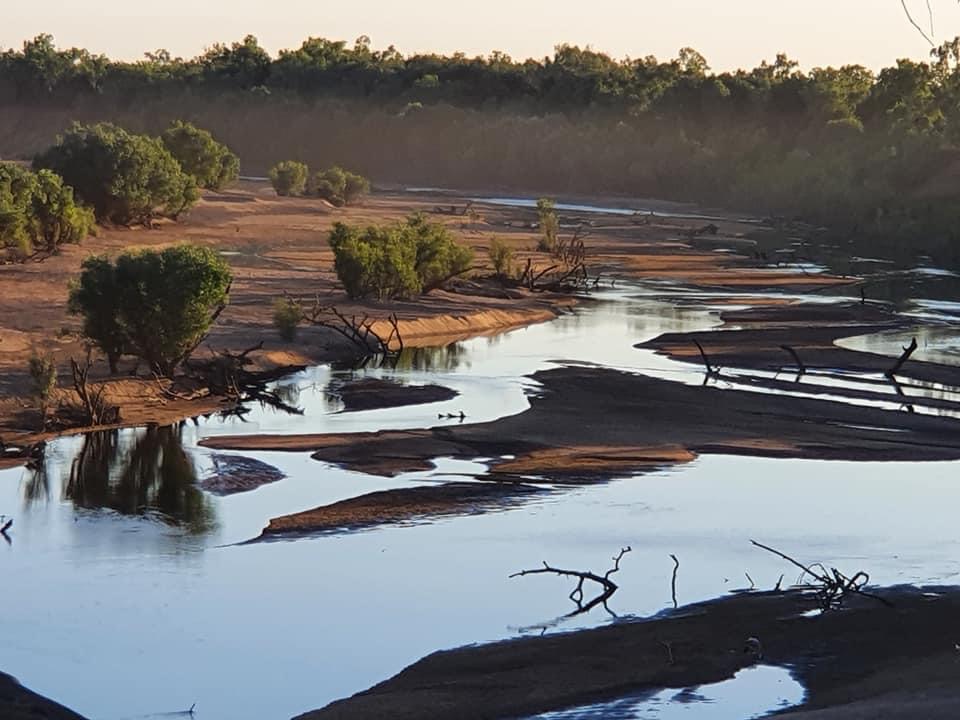Featured in

- Published 20230502
- ISBN: 978-1-922212-83-2
- Extent: 264pp
- Paperback (234 x 153mm), eBook


Already a subscriber? Sign in here
If you are an educator or student wishing to access content for study purposes please contact us at griffithreview@griffith.edu.au
Share article
About the author

Elise Bohan
Elise Bohan is a senior research scholar at the University of Oxford’s Future of Humanity Institute. She holds a PhD in macrohistory and wrote...
More from this edition

Rare
PoetryThere are many ways to carry a story. My father smothered his stories with bravado. Here he is, laughing at the sea drenching him on the deck.

On undoing
Non-fictionI am forty before I visit Europe, still ignorant that a century before me my great-grandfather had walked those same cobblestones. That he had fought in a war that did not reward him with any meaningful welcome on his return home. Now that I know, I yearn to go back and breathe that air, knowing that William was there.

A Martuwarra Serpent stirs in its sleep…
Non-fictionAboriginal people are usually confident in the enduring nature of knowledge (not just belief) because that other mob down the road has the same story, or a similar one. It is a multispecies and layered story, and that is precisely what makes it creative, unlike so much of continuing Western materialist ideas and practices.